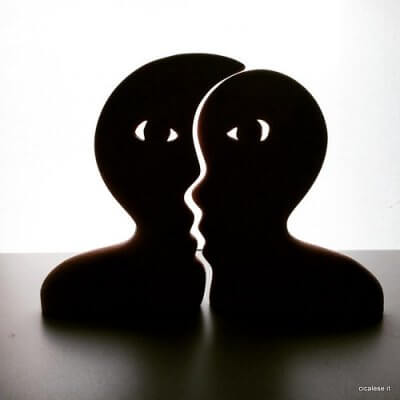Emotionally Unstable Personality Disorder in Difficult Times – Is This You?
by Andrea M. Darcy
Emotionally unstable personality disorder can mean you struggle more when the world is going through difficult times. Or your life has suddenly become very challenging. How do you now if this is you?
Do you have emotionally unstable personality disorder?
Emotionally unstable personality disorder is a more accurate term for what is commonly called ‘borderline personality disorder‘, or BPD. (There is nothing ‘borderline’ about you if you have the disorder, this was a poorly chosen name that has unfortunately stuck around).
It’s main symptom is a constant fear of rejection and abandonment. These fears result in difficult, push pull relationships, a shifting sense of self, and impulsive behaviours that can include self-harm.
Another key factor of BPD is emotional dsyregulation. Unlike others, your emotions can go from hot to cold in an instant, and it’s like you can’t control the thermostat.
7 Stress responses that point to BPD
Don’t already have a diagnosis of an emotionally unstable personality? The following description of how it affects you during stress might help.
1. You respond more to stress than others.
Emotionally unstable personality disorder is often connected to childhood trauma. And childhood adversity affects the development of the brain.
This could be why if you have this disorder you are way more sensitive to stress. A neuro-imagining study found that participants with BPD exhibit hyper-responsiveness to stress compared to a control group.
2. You feel abandoned by friends who don’t contact you.

Photo by Zulmaury Saavedra
If you have EUPD, you are very sensitive to how othres treat you. If you don’t hear from friends, you can worry. The Covid pandemic made it clear how much this affects this subset of people.
The Asian Journal of Psychiatry recently published a case study on the psychological impact of coronavirus outbreak on a BPD client. It concludes that, “public health measures during coronavirus outbreak such as the social distancing and mass indoor quarantine could intensify the feeling of emptiness and aggravate the fear of abandonment among people with BPD”.
3. Stress makes you struggle to understand yourself and others.
When we have BPD, stress and anxiety have an additional affect of making us less able to ‘mentalise’, which means understanding the mental states of ourselves and others.
Our minds get caught in cycles of black and white, dramatic thinking, with little things getting blown out of proportion. One small comment from a partner that we didn’t do a good job on the dishes? And we wonder if they don’t like us anymore, or want to break up with us.
4. Your version of loneliness can feel very extreme.
 The less people reach out to us, and the more we struggle to understand why they aren’t and overthink it all, the lonelier we can feel.
The less people reach out to us, and the more we struggle to understand why they aren’t and overthink it all, the lonelier we can feel.
Loneliness also comes from feeling different, so we can feel lonely even if we are with family or those we know.
Others can then find us ‘too intense’ or ‘dramatic’.
5. You sabotage friendships right when you need to keep them strong.
Boredom can lead to being impulsive. And if we have BPD, then we are prone to being impulsive already.
We send that biting text, only to regret it the moment we realise what we have done Or post that comment declaring we feel we have no real friends on Facebook. Our impulsivity starts to create the very rejection we fear.
Or we might be sabotaging by withdrawing. Some people with emotionally unstable personality disorder have a ‘quiet’ version. You punish by going cold.
6. You create conflict out of nowhere sometimes.
It’s not that you want conflict. But somehow being bored or stressed sees you creating drama before you even realise what you are doing. And once you start, it’s like you can’t stop.
Before you know it you are suggesting a breakup, even if it’s not what you want. It’s just that deep down you worry that the fact they responded to you pushing them away must mean they are thinking of leaving you, and you are rejecting them first to protect yourself.
But then you find a way to draw them close again. And the BPD conflict cycle begins of push pull, push pull….
7. You have thoughts of hurting yourself.
If life all gets too much, you might be tempted to self-harm, another major symptom of BPD.
As the book Mentalisation-based Treatment for Personality Disorders by Batement and Fonagy points out, “Loss of mentalising [understanding yourself and others] lead to interpersonal and social problems, variability, impulsivity, self-destructive behaviours, and violence’.
Is it definitely emotionally unstable personality disorder?
Fit most of the above descriptions? Note that this disorder doesn’t appear out of nowhere. If you recently had a big life change or difficult experience, such as the loss of loved one, you might simply be experiencing emotional shock. Hence your unstable behaviours.
But if you have quite honestly engaged in the sort of behaviours described here since late adolescence, and these sorts of behaviours affect all areas of your life? Then it is worth seeking a diagnosis. You can book a session with a psychiatrist for a full assessment.
Or, if you don’t want to wait (psychiatrists often have waitlists) and want a cheaper option, you can work with a psychotherapist that specialises in one of the talk therapies known to be effective for BPD.
If your therapist thinks, after several sessions of working together, that you are a candidate for a diagnosis? They can then refer you on to a psychiatrist. Otherwise, you can work together to find healthy coping skills that see you manage your emotions and reactions and save your relationships.
Time to talk to someone about your emotional instability? We connect you with psychiatrists and with top London BPD talk therapists. Or find psychotherapists UK-wide on our booking platform now.
 Andrea M. Darcy is a mental health and wellbeing expert. She often writes about trauma, relationships, and ADHD, and runs a consultancy advising people on how to plan their therapy journey. Find her on Instagram @am_darcy
Andrea M. Darcy is a mental health and wellbeing expert. She often writes about trauma, relationships, and ADHD, and runs a consultancy advising people on how to plan their therapy journey. Find her on Instagram @am_darcy






I have unstable personally disorder . But since lockdown I have had no contact with my mental health team, oh I have had three letters telling me I have a telephone appointment i on 11/09/20. That got cancelled, then the one in October got cancelled, so now waiting to see if November one goes a head , since I moved to Worthing nearly 3yrs ago, I have seen 4 different head doctors, and no help at all
Hi Natalie, that’s hard. Is this all through the NHS? When you say ‘health team’ what does that mean exactly? As we are wondering why you don’t have a regular weekly therapist, most are all still practising online etc. Have you asked for more support? Or talked to your GP and told him or her it’s not enough and you are not doing well? Do speak up as waiting for a letter is not going to help. Best, HT.
I have a diagnosis of BPD & possible several disorders but Psychiatry passed to Psychology who suggested I talk to the rape crisis centre. (which I did & it helped then enough for the counsellor to close my case) My GP continues to try to get Psychology to take me on to no avail. Things got so bad I lost my job in 2019 after 18 months off sick with a physical illness that impacted upon my mental health.
I did OK for a while once the decision was made. I dug deep, pulled up my big girl pants & started my own company with the help of the DWP which meant I could work around my needs, even working from bed if need be.
Then the 1st lock down hit. Supply chains stopped & business ground to a halt. I’d built up financially (should mention unfaithful, violent hubby number 5 left mid illness) I’d dealt with a lot of the marital debt & felt proud of my achievements. As time in lock down, staying in because of the physical health issues, not seeing anyone & more impactful the loss of structure & purpose began to take its toll. Living on UC & PIP now.
Now nearing the end of this current lock down I’m struggling to get out of bed, awake all night & sleeping daytime. Constantly fighting in my head the negative thoughts of unworthiness & pointlessness. I definitely think the restrictions in place for the pandemic have negatively impacted existing conditions & there has been no support offered. Mental health services should understand its not easy for people already experiencing symptoms to reach out for help.
Gloria
Hi Gloria, it’s definitely been difficult for many. The UK is one of the only countries globally that offers any sort of free counselling, but it can unfortunately be limited with shocking waiting lists. It’s tough that your GP hasn’t managed yet to get you another counsellor. If you haven’t let her know yet that you are having sleep difficulties and struggling out of bed, please do. And just to let you know if there is ever a moment you just really need to talk to someone, the UK has many wonderful free help lines, we have a list here http://bit.ly/mentalhelplines. Another thought is to call your local chapter of the Mind charity to see if there are any free support groups in your area. Best, HT.